
Modeling systems
William T. Powers (2009) We hear quite a lot about models such as weather models which can be used to predict what will happen in the next few days, or models of colliding galaxies which […]

William T. Powers (2009) We hear quite a lot about models such as weather models which can be used to predict what will happen in the next few days, or models of colliding galaxies which […]

William T. Powers (2011) In PCT, we say that organisms learn control, not behavior. But the meaning of that isn’t self-evident — isn’t controlling also behaving? The organization of a control system, in most cases, […]

William T. Powers (2010)

Timothy A. Carey Routledge; 1st edition (December 1, 2017) Book description Inappropriate health care is an escalating and expensive problem. It affects high income, middle income, and low income countries and wastes billions of dollars […]

Timothy A. Carey, Sara J. Tai, and Robert Griffiths Palgrave Macmillan; 1st ed. 2021 edition (April 5, 2021) Book Description This book offers a radically different perspective on the topic of health inequity. Carey, Tai, […]
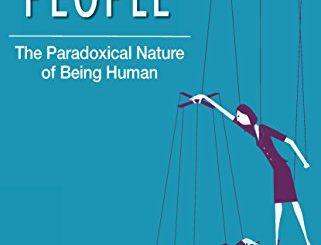
Richard S. Marken, and Timothy A. Carey Australian Academic Press (February 3, 2016) Book description “We need to strive for a world where people control what is important to themselves while minimizing the controlling of […]
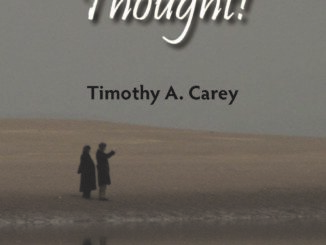
Timothy A. Carey New View Pubns (January 1, 2008) Book description Believing that people with psychological problems get themselves better, Australian clinical psychologist, academic and researcher Timothy A. Carey introduces readers to the Method of […]
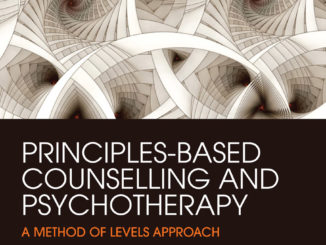
Timothy A. Carey, Warren Mansell, and Sara J. Tai 2015, Routledge. ISBN 9780415738781 Book Description Many current approaches to the treatment of psychological problems focus on specific disorders and techniques that are purported to be […]

Warren Mansell, Timothy A. Carey, and Sara J. Tai Routledge; 1st edition (November 27, 2012) Book description Cognitive Behavioural Therapy (CBT) is the treatment of choice for most mental health problems. Each different problem is […]
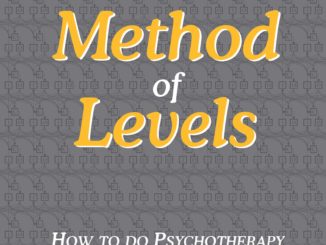
Timothy A. Carey “I’ve just finished the Method of Levels, and I’m astonished, delighted, and inspired. I was a psychotherapist for many years, using a variety of approaches (predominantly Gestalt Therapy, several versions of family […]

Martin Taylor’s ongoing book project describing the foundations of perceptual control theory and its many implications. […]
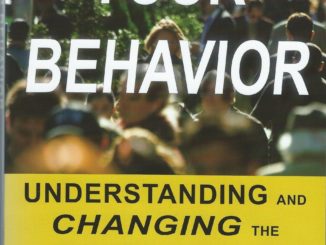
“Wow. I am impressed with this book! It is comprehensive, neatly structured, and provides a great scientific context for introducing Perceptual Control Theory to the layperson. The explanation builds up gradually over the chapters. Fantastic.” – Warren Mansell, DPhil, DClinPsy, CPsychol […]
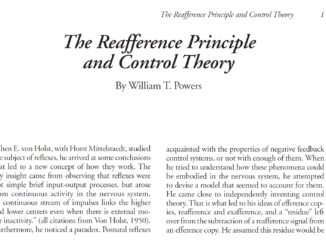
William T. Powers …small changes convert von Holst’s model into a true negative feedback control system. lf we assume with von Holst that a similar architecture holds at higher levels in the nervous system, we […]
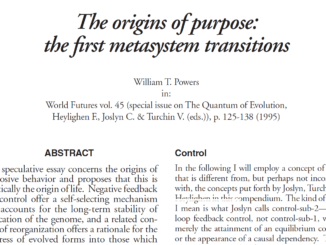
A proposal that the the emergence of negative feedback control and the emergence of life are the same thing. A picture emerges in which the basic principle of control runs like a unifying thread from the first living molecules to modern complex organisms. […]
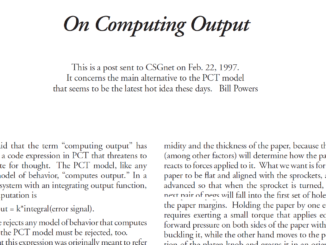
Notes on the notion that the brain plans our movements and issues commands to muscles, pre-computing the precise muscle movements for people or robots. […]
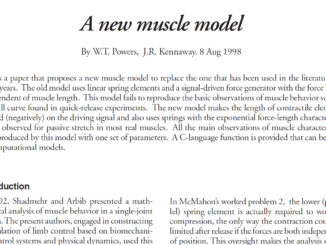
If you are going to reverse engineer and then simulate living organisms and how they move about, it is important to simulate all the physics correctly, such as the ray tracing included in the Little Man. Here is a paper that offers significant improvements regarding simulating the actions of muscles. […]
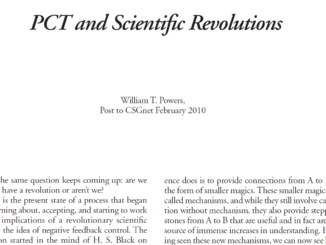
A short post to CSGnet with comments on LCS III […]
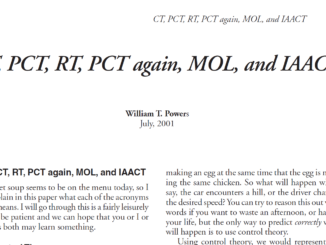
Bill Powers discusses each of these acronyms: Control Theory, Perceptual Control Theory, Reality Therapy, The Method of Levels, and The International Association for Applied Control Theory. […]
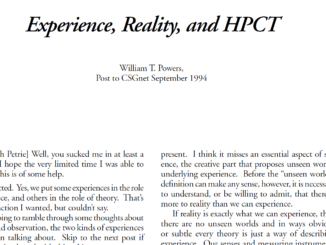
A short post to CSGnet on how we think about our senses, our experiences, and how we draw conclusions about the reality we live in (or whether we think we observe reality directly and merely need to report what we observe. […]
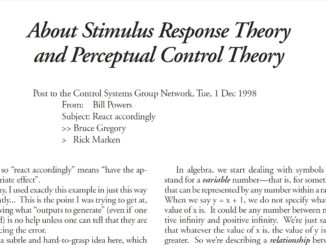
A short post to the Control System Group network (CSGnet) on the difference between cataloging behaviors and modeling systems that use behaviors to control perceptions. […]
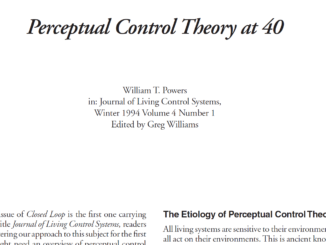
This intro to PCT is slanted toward those coming into to this subject from the physical sciences. Bill Powers develops an argument that leads from conventional views of behavior to the new view that PCT gives us, emphasizing in the end the odd role that organisms, seen through the eyes of PCT, play in a world otherwise dominated by physical laws. The point will be to show that control theory provides us with the germ of a radically new understanding, a break with all traditional theories of behavior—and many new ones as well […]
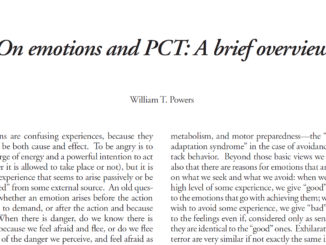
Explaining emotion from a PCT perspective. […]
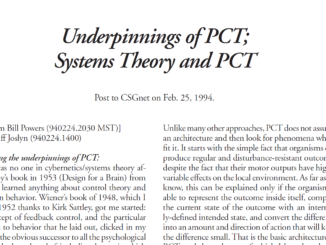
A discussion of the origin of PCT. […]
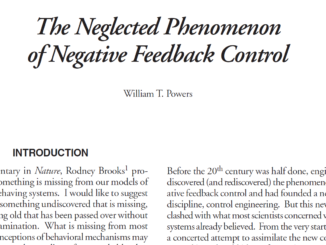
William T. Powers Control of perception has been reported at very basic levels of life.
Copyright © 2022 iapct.org